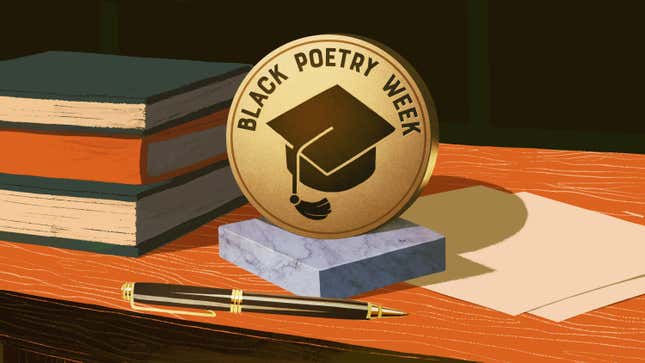
Editor’s note: This week, for National Poetry Month, we’re featuring 37 up-and-coming black poets who we expect do amazing work over the next decade. We grouped them by categories, though their works often blur boundaries and defy definitions. Monday’s theme was Black Regionalism, poets who look at black life and society through the prism of geographic regions or cultures. Tuesday, we presented poets who center being black and queer and place white, cis, heteronormativity to a backdrop. Today, these nine poets work in academic, cultural and government institutions committed to elevating and preserving the poetry artform.
Amanda Gorman
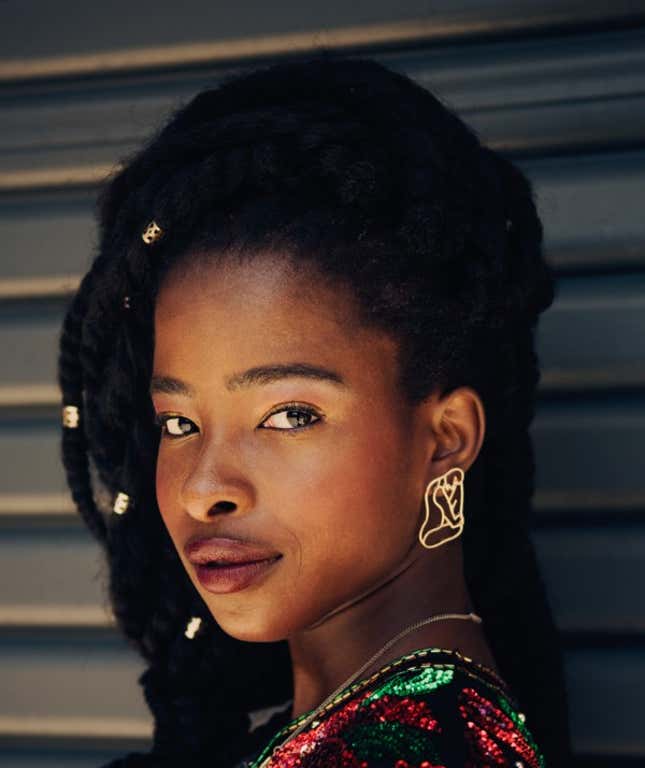
Twitter: @AmandaSCGorman
Amanda Gorman is not going to let school get in the way of her dreams. Named the first National Youth Poet Laureate in 2017, Gorman wrote her first poetry collection, The One For Whom Food Is Not Enough (Pemanship Books) before she got to Harvard. While still a co-ed, the Los Angeles native writes for the New York Times student newsletter, the Editis, and leads One Pen One Page, which she founded to promote literacy through free creative writing programming for underserved youth. She was also named one of this year’s Young Futurists by The Root.
Excerpt from “In This Place (An American Lyric)”
There’s a poem in this place—
in the footfalls in the halls
in the quiet beat of the seats.
It is here, at the curtain of day
Dexter Booth
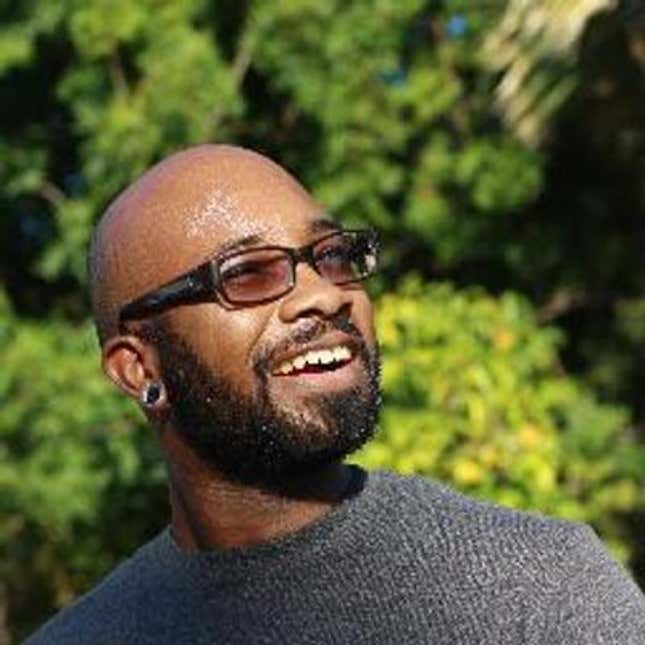
Twitter: @DexterLBooth
Dexter L. Booth is the author of Scratching the Ghost (Graywolf Press), which won the 2012 Cave Canem Poetry Prize. His poems have been included in the anthology The Best American Poetry 2015, as well as Blackbird, the Southeast Review, Ostrich Review, Grist, Willow Springs, Bat City Review, Virginia Quarterly and other publications. Booth received his Master of Arts in Creative Writing from Arizona State University and is currently a contributing editor for Waxwing and a Ph.D. candidate and Provost Fellow at the University of Southern California.
Excerpt from “The Body”
They split the hog down the middle.
It was cold and raining, I remember
the steam and the knife and the squeal and how
they all left the body like a ghost.
Dustin Pearson

Twitter: @dustinkpearson
Dustin Pearson, author of Millennial Roost (C&R Press) and A Family Is a House (C&R Press), won the Academy of American Poets Katharine C. Turner Prize and received fellowships from Cave Canem and the Virginia G. Piper Center for Creative Writing. He holds a Master of Fine Arts from Arizona State University and is a McKnight Doctoral Fellow at Florida State University. Formerly, he served as the editor of Hayden’s Ferry Review and a director of the Clemson Literary Festival.
Excerpt from “Our Father’s New Body”
we must’ve helped him that little-huge bit that was possible.
In the last of it, the skin pulled so sharply against his jaw we swore with it
we could cut mountains. Maybe at a certain point we always knew
we could remove him, but we wouldn’t, less whatever sadness
Kyle G. Dargan
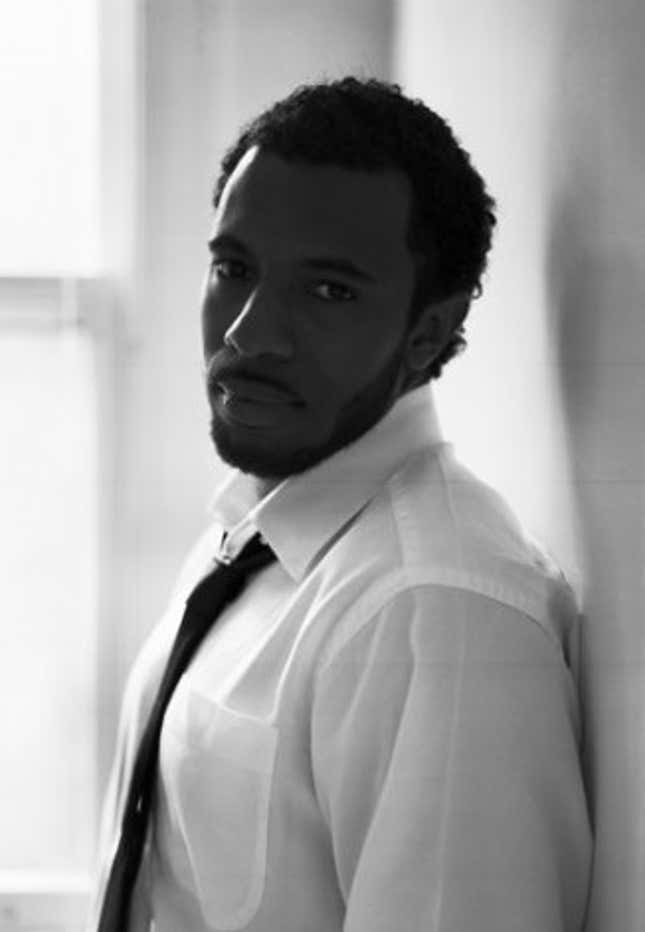
Kyle Dargan is the author of Anagnorisis (TriQuarterly/Northwestern UP). Four previous poetry collections were published by the University of Georgia Press. Kyle has received the Cave Canem Poetry Prize and the Hurston/Wright Legacy Award. His books have also been finalists for the Kingsley Tufts Poetry Award and the Eric Hoffer Awards Grand Prize. He is currently an associate professor of literature and assistant director of creative writing at American University. He is a graduate of the University of Virginia and Indiana University.
Excerpt from “SEPARATING”
What of my thin shell or my own yoke unbroken within me
(both functions of money, time, deficits)? And I know nothing
about industrial farms. And I understand so much of blkness
as what I do in spite of my caging...
Malcolm Tariq
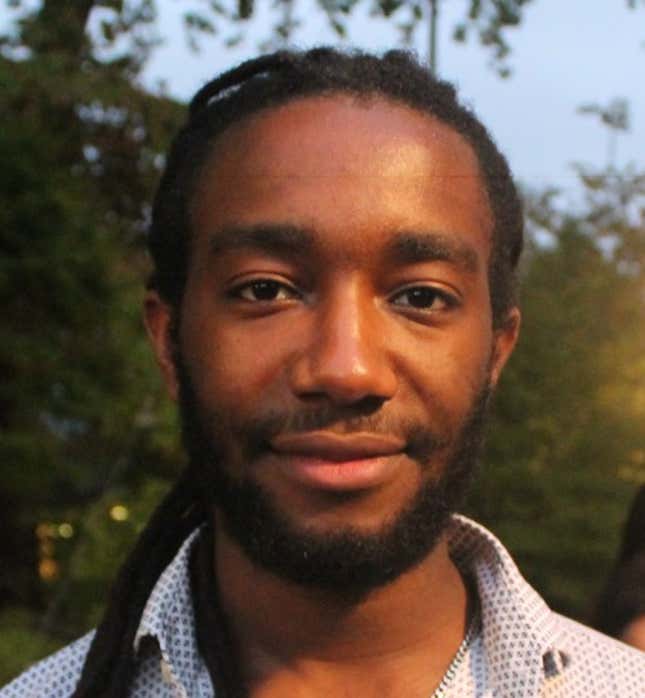
Twitter: @MalcolmTariq
Malcolm Tariq is the author of Heed the Hollow (Graywolf Press). In recent years, Malcolm was the winner of the 2018 Cave Canem Poetry Prize and the 2017 Gertrude Press Poetry Chapbook Contest. His poetry has appeared or is forthcoming in CURA, Vinyl, HEArt Online, Nepantla, Tinderbox, Blueshift Journal and the Iowa Review. He is a Cave Canem fellow and was a 2016-2017 playwriting apprentice at Horizon Theatre Company. A graduate of Emory University, Malcolm has a Ph.D. in English from the University of Michigan.
Excerpt from “PRINCIPLE PLEASURE”
Everybody wants my body
but me.
I hung head before the mirror, wished
more weight filled the thin thighs, that
the clavicle was covered by more flesh.
Natalie J. Graham

Twitter: @NatalieJoGraham
Natalie Graham’s first full-length collection of poems, Begin With a Failed Body (University of Georgia Press), won the 2016 Cave Canem Poetry Prize. Her poems have appeared in Callaloo, New England Review, Valley Voices: A Literary Review and Southern Humanities Review. The Cave Canem fellow is an assistant professor of African American Studies at California State University, Fullerton. Natalie earned her M.F.A. in Creative Writing at the University of Florida and completed her Ph.D. in American Studies at Michigan State University as a University Distinguished Fellow.
Excerpt from “Leaping Fire in Princeville Park”
Quinisha skinned a black matchbox to spark
the boil for Cajun crabs.
Hammers waited to crack the smoking shells,
and picks glittered for the slippery meat.
Nicole Sealey
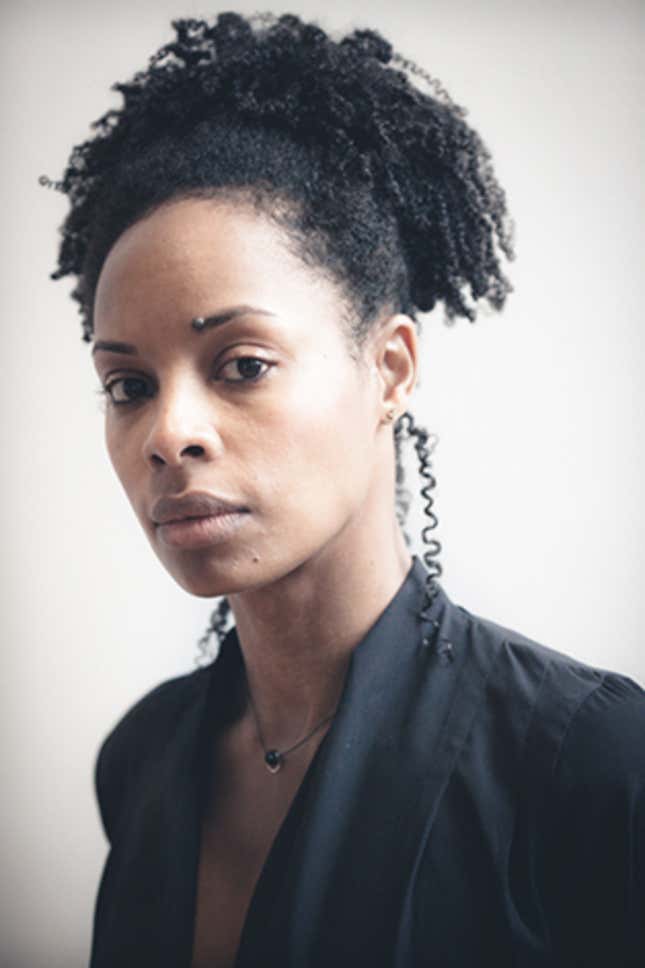
Twitter: @Nic_Sealey
Nicole Sealey’s most recent poetry collection, Ordinary Beast, was a finalist for the PEN Open Book and Hurston/Wright Legacy Awards. Her The Animal After Whom Other Animals Are Named, won the Drinking Gourd Chapbook Poetry Prize. The 2019-2020 Hodder Fellow at Princeton University also received a 2019 Rome Prize, the Stanley Kunitz Memorial Prize from the American Poetry Review, and the Poetry International Prize. Before serving as Cave Canem Foundation’s executive director, Sealey was a Cave Canem graduate fellow. Nicole holds a Master of Liberal Arts in Africana studies from the University of South Florida and an M.F.A. in creative writing from New York University.
Excerpt from “A Voice”
You hear the high-pitched yowls of strays
fighting for scraps tossed from a kitchen window.
They sound like children you might have had.
Had you wanted children. Had you a maternal bone
Nicole Terez Dutton
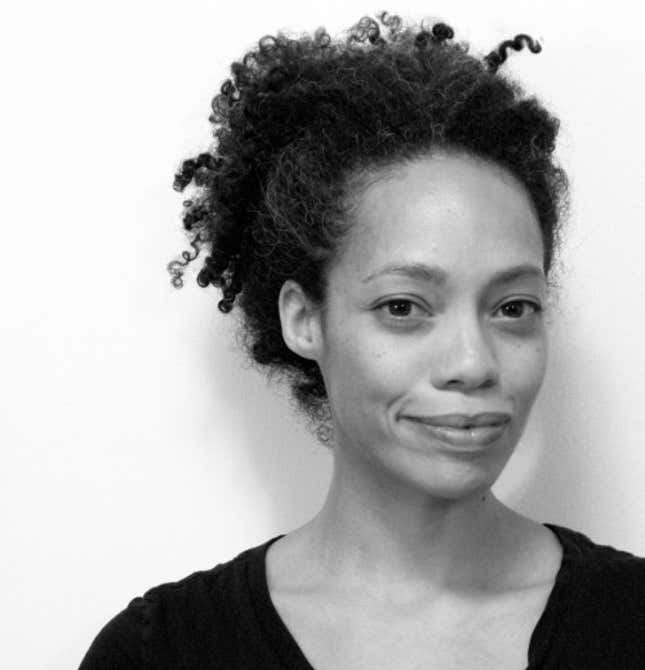
Nicole Terez Dutton lives in Somerville, Mass., where she served as the city’s inaugural poet laureate. Her collection of poems, If One Of Us Should Fall, was selected as the winner of the 2011 Cave Canem Poetry Prize. She teaches in the Solstice Low-Residency M.F.A. Program and is an editor at the Baffler and Transition Magazine. Nicole earned an M.F.A. from Brown University.
Excerpt from “Elements”
There must be a train station
never arrived at
smoky boxcar teak
and rum; a dark Jamaican
Tiana Clark
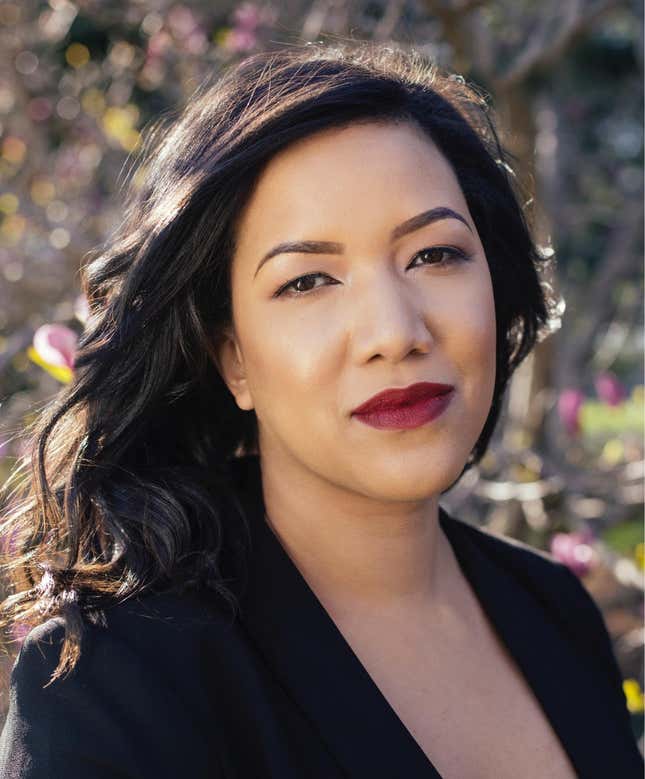
Twitter: @TianaClarkPoet
You may have nodded while reading Tiana Clark’s viral essay, “This Is What Black Burnout Feels Like” in which she asked, “If the American dream isn’t possible for upwardly mobile white people anymore, then what am I even striving for?” Her poetry collection, I Can’t Talk About the Trees Without the Blood (University of Pittsburgh Press), was the winner of the 2017 Agnes Lynch Starrett Prize. Clark is a 2019 National Endowment for the Arts Literature Fellow and a recipient of a 2019 Pushcart Prize, as well as a winner of the 2017 Furious Flower’s Gwendolyn Brooks Centennial Poetry Prize and 2015 Rattle Poetry Prize. She is a graduate of Vanderbilt University (M.F.A.) and Tennessee State University (B.A.) where she studied Africana and Women’s studies.
Excerpt from “Bear Witness”
O, Carrie—
what are you trying
to tell me here?
I’ve been standing by water
my whole damn life
trying to get saved.
Yolanda Young is the author of the memoir, On Our Way to Beautiful, published by Random House in 2002. She founded @DorpieBooks to ensure space for black voices. She is also executive director of Lawyers of Color. Follow her on Twitter.

